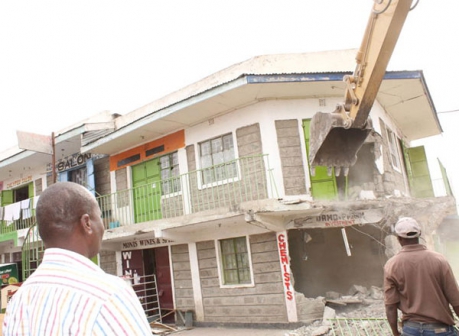×
The Standard e-Paper
Stay Informed, Even Offline

According to property laws, the Government must compensate — at market rates — registered property owners whose investments are acquired or demolished for development.